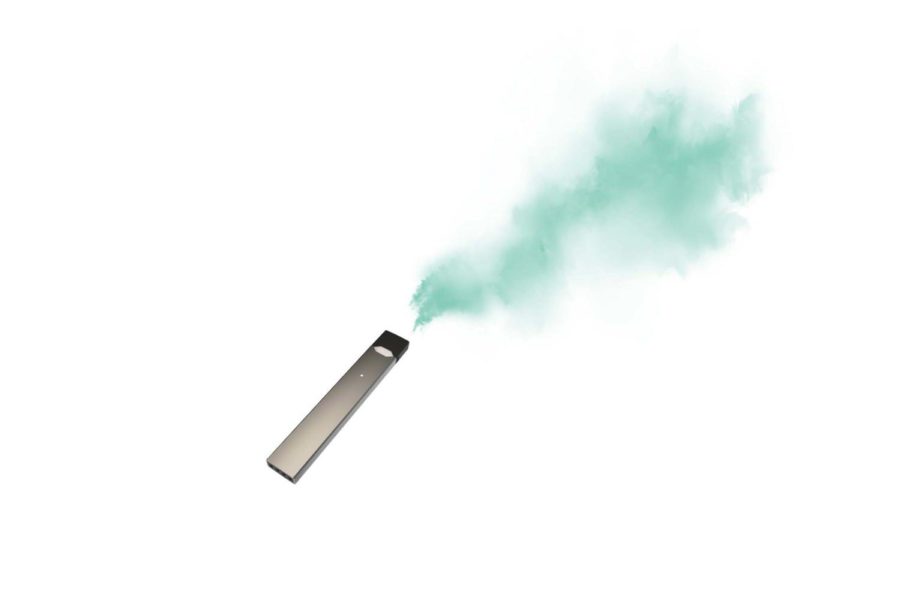Vape me away
A discussion on the recent controversy over e-cigarettes with Pediatric Surgeon Dr. Tony Escobar
October 9, 2019
E-cigarettes have been marketed as the safer option to regular tobacco cigarettes. Due to recent illnesses and deaths, however, this has proven to not be completely true. As of October 4, there have been 18 reported deaths due to vaping related causes, and roughly 805 people have suffered from vaping-induced lung injuries.
According to the New England Journal of Medicine, vaping prevalence has more than doubled in the 8th, 10th, and 12th grades over the past 3 years where, in the past 30 days, 1 in 11 adolescents in 8th grade vaped, 1 in 5 adolescents in 10th grade vaped, and 1 in 4 adolescents in 12th vaped.
These events coincide with a new law that the state of Washington will adopt in January 2020. The law called Tobacco 21 will make it illegal for persons under the age of 21 to buy tobacco products, including vape products. This increases the purchasing age of tobacco products from 18 to 21. However, if an individual has already turned 18 before January 1, 2020, he or she can continue to buy nicotine and tobacco products.
“Tobacco 21 is a necessary and important step to preventing nicotine addiction,” said Chief of Pediatric Surgery at Tacoma General Hospital Tony Escobar. However, Escobar said, this only addresses tobacco and nicotine products, which does not take into account THC-based vaping, which has become increasingly popular. Many adolescents are experimenting with THC-based vaping devices, which could be more risky due to lack of standardized quality control.
Escobar said he is not surprised about the recent accumulation of deaths. “Vaping devices are unregulated and can contain any number of contaminants or chemicals that can adversely affect the lungs,” he said. He added that the cartridges may discharge chemicals due to the intense heating of the vape device.
One enticement of vaping is the claim that it is a “better” and “healthier” alternative to smoking cigarettes. In fact, the marketing is completely false, Escobar said. The vaping device uses an extremely hot ignition of chemicals to create a smoke delivery system to lungs, which is very harmful to the human body.
Escobar also cited ways that Juul markets to children. “There is a long history of tobacco companies marketing to teens and young adults in this country,” he said. “It’s often believed that vaping is targeted at younger individuals due to its attractive marketing and fruity flavors. Juuling in particular is popular amongst young individuals. The fact that vaping tobacco is created in ‘flavors’ clearly indicates the targeting of consumers who may not normally be interested in the taste of tobacco. Marketing ‘tasty’ or ‘sweet’ flavors of tobacco is clearly aimed at children.”
Recently the CEO of Juul, Kevin Burns, resigned from the position in light of the growing crisis on September 25. After casualties rose and stricter vaping laws passed, Juul stopped all advertising of their vaping products.










